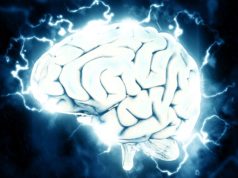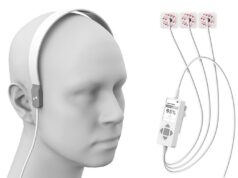
Martin M Brown, professor of Stroke Medicine, UCL Institute of Neurology, London, UK, consultant neurologist, The National Hospital for Neurology and Neurosurgery, Queen Square, London, and clinical lead, Thames Stroke Research Network, tells NeuroNews that the natural tendency of clinicians is to think they know what is best for their patients, even if the evidence is scanty or contradictory. The major challenge, once a trial is completed, is persuading clinicians that the results apply to their practice, he says.
How did you come to choose medicine? What drew you to neurology?
My father was a surgeon and it was rather assumed that I would follow in his footsteps and take up medicine. As an undergraduate at Cambridge, I read Experimental Psychology in the third year of my medical degree. During the course, I read Ernest Jones’ biography of Sigmund Freud. I found the first part of Freud’s life, when he was working as a neurologist, far more interesting than when he started speculating about the psyche, and it was then that I decided I wanted to become a neurologist.
Which innovations in neurology have shaped your career?
Without doubt, the introduction of the EMI scan (later known as CAT scan) while I was a senior house office and then the NMR scan (later known as MRI), when I was a registrar.
Who were your mentors in the field and what do you still remember from their wisdom?
I was lucky enough to be a houseman with Chris Earl, who taught me the importance of precise history taking and examination in Neurology, and Michael Harrison, who introduced me to stroke. After that, I was fortunate to do my first research post with John Marshall at Queen Square in cerebral blood flow, and then went to Canada to do a fellowship with Vladimir Hachinski and Henry Barnett, who taught me all I know about running clinical trials.
Your research has involved the organisation and management of randomised trials of treatments to prevent stroke, which is a public health priority. What are the key challenges in this area that need to be overcome?
The first major challenge once one has got over the enormous hurdle of obtaining funding, is to persuade clinicians that they should randomise their patients between two treatments being tested in a randomised trial. The natural tendency of clinicians is to think they know what is best for their patients, even if the evidence is scanty or contradictory. Once the trial is completed, the major challenge is a similar one of persuading clinicians that the results apply to their practice. If they do not like the results, the trial will be criticised for cherry picking or not having the “right” surgeon or not giving the treatment in the “right” way. As a result, one often has to have several trials reporting similar results before clinicians can be persuaded to change practice. There is also a tendency for clinicians to take notice of only the initial “headline” results, while often subsequent data can be equally important.
As chief investigator and organiser of the International Carotid Stenting Study, you have been involved in evaluating carotid stenting. What is your message to interventionalists regarding carotid stenting and endarterectomy taking into account data from ICSS and CREST?
ICSS and CREST appear to have come to very different conclusions about the role of stenting versus endarterectomy for carotid stenosis. This is contrary to the fact that the results of both trials were almost identical when you compare stroke rates in the symptomatic patients included in CREST with ICSS (which only included symptomatic carotid stenosis). Both trials showed that stenting carried an excess risk of stroke or death within 30 days of treatment. Both trials also showed that the excess risk was confined to the older patients, while below around the age of 70, the early risks of stenting and endarterectomy were similar. To most neurologists, the excess of non-disabling myocardial infarction does not cancel out the excess of stroke associated with stenting. I do not think there is any doubt that the main message from both trials is that carotid endarterectomy is the treatment of choice for suitable older patients.
Can you tell us a bit about the new randomised controlled trial, 2nd European Carotid Surgery Trial, you are involved in?
The 2nd European Carotid Surgery Trial (ECST-2) will investigate the hypothesis that in patients with atherosclerotic carotid artery stenosis at low and intermediate risk for stroke, optimised medical treatment (OMT) will avoid the need for carotid revascularisation. ECST-2 will screen patients on-line using clinical and imaging characteristics to calculate a five-year Carotid Artery Risk (CAR) score, which will stratify patients according to their likely risk of future stroke treated medically. Patients at high risk of stroke recurrence will not be included, but those symptomatic or asymptomatic stenosis at lower risk will be randomly allocated in equal proportions to be treated by carotid revascularisation with OMT (“immediate revascularisation”) and OMT alone (“delay revascularisation until more clearly indicated”). We anticipate that endarterectomy will be the usual revascularisation treatment, but carotid stenting may be used if more appropriate. OMT in both arms will include optimal antiplatelet therapy, high-dose statin treatment with a target total cholesterol and antihypertensive treatment with a target blood pressure. An interim analysis using MRI to determine rates of cerebral infarction and haemorrhage will be performed, with long-term follow-up to compare clinical outcome events.
From your research, please describe what the clinical significance of cerebral microbleeds in ischaemic and haemorrhagic stroke might be… How important are these?
The urgent issue, which is being addressed by the CROMIS trial led by David Werring from the UCL Institute of Neurology, is to determine whether the finding of microbleeds on brain MRI predicts a high risk of cerebral haemorrhage in patients treated with warfarin or similar agents. It is also possible that microbleeds could predict a high risk of ischaemic stroke and we already have some evidence that they are associated with cognitive impairment. We also need to know more about how they arise in relation to both cerebral amyloid angiopathy and hypertensive small vessel disease.
As a committed teacher, mentoring a range of students from Msc to higher degree level, what do you hope to impart to young people in the teaching of neurology?
Enthusiasm for the subject, an interest in research and a commitment to using evidence-based medicine in their practice.
What are your interests outside of medicine?
My outside interests are opera (especially Wagner and other romantic composers), gardening, good food and wine. I also love travelling, skiing and tennis and am looking forward to spending more time with my wife when I cut down on my work load!
Fact File
Current positions
Professor of Stroke Medicine, UCL Institute of Neurology, London, UK
Consultant neurologist, The National Hospital for Neurology and Neurosurgery, Queen Square, London
Honorary consultant neurologist, Great Ormond Street Hospital for Children, London
Clinical lead, Thames Stroke Research Network
Qualifications
MB, BChir (Cambridge University, 1975)
MD, MA (Cambridge University, 1984)
FRCP (Royal College of Physicians, 1994)
Previous appointments
1989–1998 Senior lecturer, then reader in Neurology, St George’s Hospital Medical School and consultant to the Stroke Unit, St George’s Hospital and Atkinson Morley’s Hospital, London
1988–1989 Research fellow, NASCET Trial Office, University of Western Ontario, Canada
Recent publications
International Carotid Stenting Study investigators, Ederle J, Dobson J, Featherstone RL, Bonati LH, van der Worp HB, de Borst GJ, Lo TH, Gaines P, Dorman PJ, Macdonald S, Lyrer PA, Hendriks JM, McCollum C, Nederkoorn PJ, Brown MM. Carotid artery stenting compared with endarterectomy in patients with symptomatic carotid stenosis (International Carotid Stenting Study): an interim analysis of a randomised controlled trial. Lancet 2010 Mar 20; 375(9719):985-97.
Bonati LH, Jongen LM, Haller S, Flach HZ, Dobson J, Nederkoorn PJ, Macdonald S, Gaines PA, Waaijer A, Stierli P, Jäger HR, Lyrer PA, Kappelle LJ, Wetzel SG, van der Lugt A, Mali WP, Brown MM, van der Worp HB, Engelter ST; ICSS-MRI study group. New ischaemic brain lesions on MRI after stenting or endarterectomy for symptomatic carotid stenosis: a substudy of the International Carotid Stenting Study (ICSS). Lancet Neurol. 2010 Apr; 9(4):353-62.













